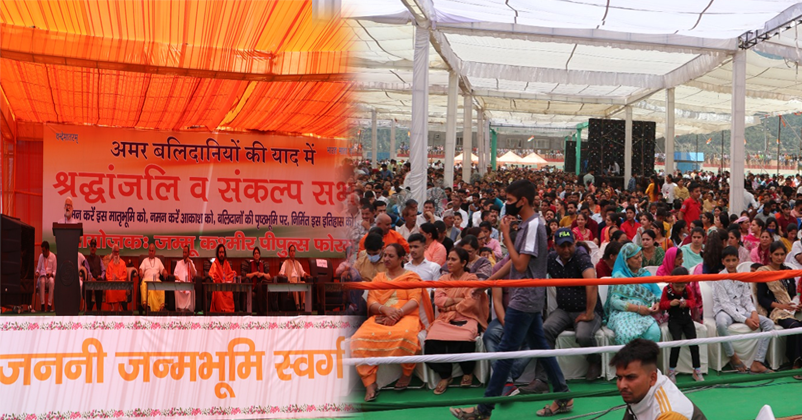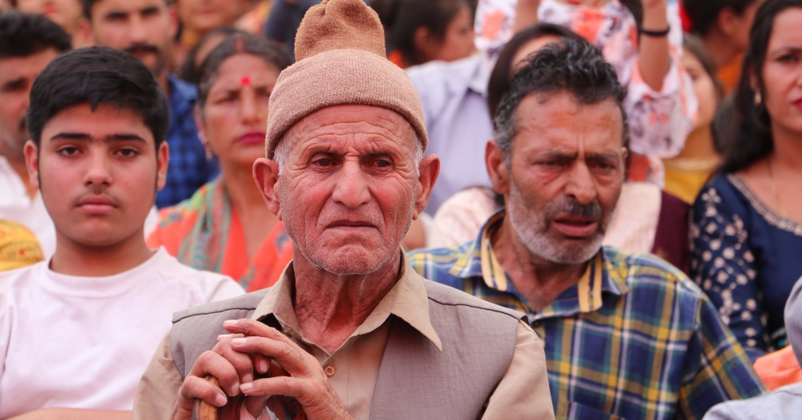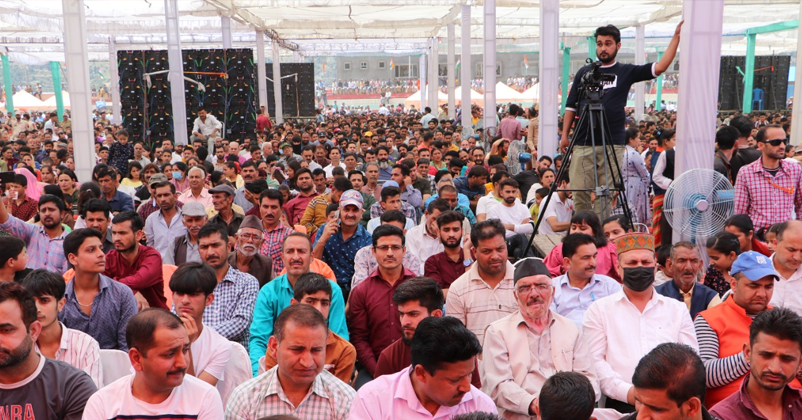POJK vacant Assembly seats Representation through election, not nomination.
Total Views |

Ronik Sharma (Advocate)
The Delimitation Commission, as we all know, has submitted its final report, and it should be noted that the Delimitation Commission was formed by the Government of India in the exercise of powers conferred by Section 3 of the Delimitation Act, 2002 (33 of 2002), for the purpose of delimitating Assembly and Parliamentary Constituencies in the Union Territory of Jammu & Kashmir.The Delimitation Act of 2002 and the Jammu and Kashmir Reorganisation Act of 2019 established the general boundaries under which the delimitation procedure was to be carried out. Five Lok Sabha members elected from Jammu and Kashmir's Union Territory worked with the Commission on delimitation but without any voting rights.Still, the associate members may be able to perform some useful work, although how carefully they worked may be questioned, as was the case with the 1995 delimitation order. No doubt the Delimitation Commission order under law is immune to challenge before any court and hence people, particularly those outside the valley of remote areas of Poonch, Reasi, Kishtwar, Udhampur, Ramban, etc, will have to live with it for some more time.
The Hon'ble Speaker of the Lok Sabha has nominated these Associate Members.The Delimitation Commission prepared Guidelines and Methodology for the Delimitation of Assembly and Parliamentary Constituencies in Jammu and Kashmir, which were followed during the delimitation process to ensure smooth operation and successful results, while taking all of the required factors into consideration.The Commission classified all twenty districts into three broad categories based on geographical features, means of communication, public convenience, and area contiguity, as well as inputs gathered during the Commission's visit to the Union Territory from July 6th to July 9th, 2021, namely, A-Districts with predominantly hilly and difficult areas; B-Districts with hill and flat areas; and C-Districts with hill and flat areas, while suggesting allocation of the constituencies to the districts, giving a margin of +/-10% of the average population each Assembly Constituency. The Delimitation Commission has proposed forming an additional constituency for seven districts to balance representation for geographic areas with limited communication and a lack of public conveniences due to their extreme remoteness or unfavourable conditions on the international border, according to the Commission. However, despite some people working on the subject requesting it, the commission has not made the facts or specifics of data utilised by the commission for district classification public while soliciting objections or ideas to its proposals. At the public hearing, the Commission heard from several displaced persons from Pakistan-controlled areas of Jammu and Kashmir, though only for a brief time.

1947 Pakistan Occupied Jammu and Kashmir displaced persons (POJK DPS) spoke before the Commission from a range of perspectives, highlighting their contention that they have been persecuted in their own country for more than seven decades and have gone unnoticed as the first victims of Pakistani direct or indirect atrocities. Without a doubt, the Delimitation Commission has recommended that Pakistan Occupied Jammu and Kashmir displaced persons (POJK DPs) be represented in the Legislative Assembly of the Union Territory of Jammu and Kashmir in one of its notes to the Central government outside the main delimitation order of May 5, 2022, but it has not been as considerate as it has been to the "second" victim of Pakistan's designs, for whom the commission has specifically suggested the nomination of two seats. Even by those standards, there may be a minimum of four seats for Pakistan Occupied Jammu and Kashmir displaced persons based on the number of family members registered as stated by the successive governments in the erstwhile State of Jammu and Kashmir and at the Centre for 1947 displacement and for 1990 migration. Displaced people from Pakistan-controlled Jammu and Kashmir have also asked for Loksabha representation to protect their political rights.The Central Government is said to have received the following proposals from the Delimitation Commission: The Central Government may consider giving displaced persons from Pakistan-occupied Jammu and Kashmir some representation in the Jammu and Kashmir Legislative Assembly through the nomination of representatives. It is not the first time that suggestions and recommendations have been made in favour of displaced persons from Pakistan-occupied Jammu and Kashmir filling the twenty-four seats reserved for them in the Jammu and Kashmir Legislative Assembly.

Several committees had previously recommended that displaced persons from the Pakistan occupation of Jammu and Kashmir in 1947 be nominated for vacancies in the Jammu and Kashmir Legislative Assembly. Earlier, in the former State of Jammu and Kashmir, it is known that in the constitution of Jammu and Kashmir, 24 seats had been reserved for the territory which is still under the illegal occupation of Pakistan. As per Section 48 of the Constitution of Jammu and Kashmir, notwithstanding anything in Section 47, until the area of the State under Pakistan's occupation ceases to be so occupied and the people residing in that area elect their representatives, twenty-five seats in the Legislative Assembly shall remain vacant and shall not be counted in calculating the total membership of the Assembly and the said area shall be excluded in delimiting the territorial constituencies under Section 47. Now after the reorganization act of 2019 and the creation of new Union territories, situation of Jammu and Kashmir has been changed and the 24 seats were reserved in the legislative assembly according to the population census figure during the period in early 50's and now after the lapse of more than seven decades population of the forcibly 1947 displaced persons has increased who were thrown out from their homes and hearths.Now the time has come to setup a team of legal experts/ people from social sector working for 1947 Pakistan Occupied Jammu and Kashmir displaced persons issues so that the pending processes may be set in motion.The central government must make its position clear and increase Assembly seats for 1947 Pakistan Occupied Jammu and Kashmir displaced persons. So that no one can exploit Pakistan-occupied Jammu and Kashmir displaced persons and Kashmiri migrants, who include Sikhs, Muslims, and others in addition to Hindus, in political games, and the representation should be by election and not by nomination.
Ronik Sharma (Advocate)

